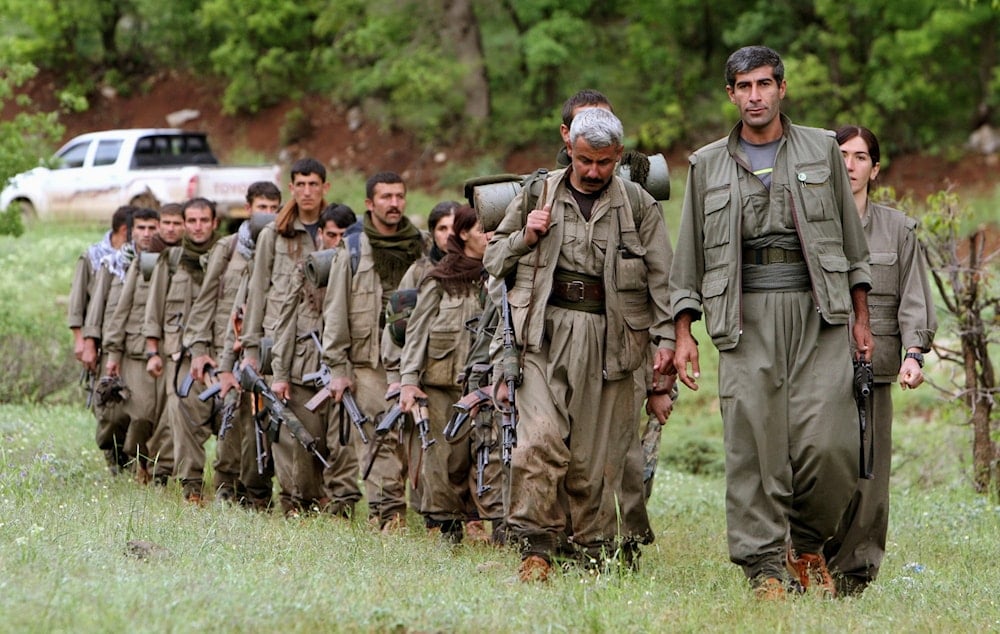PKK withdrawing from border area in northern Iraq
The PKK announced its withdrawal from the Zab region in northern Iraq to ease tensions with Turkey, calling the move a step toward advancing the peace process and aligning with resolutions from the group's 12th Congress.
-

A group of armed Kurdish fighters from the Kurdistan Workers Party (PKK) enter northern Iraq in the Heror area, northeast of Dahuk, 260 miles (430 kilometers) northwest of Baghdad, Iraq, on May 14, 2013. (AP Photo/Ceerwan Aziz, File)
The Kurdistan Workers' Party (PKK) announced on Monday its withdrawal from a strategic region near the Iraq-Turkey border, in a move it described as a contribution to ongoing efforts to ease tensions with Ankara and advance the peace process.
According to a statement carried by the Furat News Agency, which is closely affiliated with the PKK, the group confirmed it had completed its withdrawal from the Zab region by Sunday evening, November 16. The area has long been considered a flashpoint in the armed conflict between the PKK and Turkey.
The party described the withdrawal as a response to the "risk of conflict" in the region, stating that its forces had moved to what it called "suitable areas." It emphasized that the step was intended to de-escalate the situation and reduce the likelihood of confrontation.
“This is an important practical contribution to the development and success of the peace process,” the PKK said in its statement, referring to the broader political negotiations aimed at ending decades of armed hostilities between the group and the Turkish state.
PKK fighters to be granted guarantees
The move comes amid reports that Turkish authorities are drafting legislation that could allow thousands of PKK fighters and affiliated civilians to return from hideouts in northern Iraq. According to Reuters, the plan is part of a broader dialogue between Ankara and Kurdish factions.
Monday’s announcement follows a similar statement made on October 26, when the PKK declared a full withdrawal from Turkish territory toward northern Iraq. At the time, the group described the decision as “historic” and aligned with the second phase of the “peace and democratic society path” adopted during its 12th Congress.
The October withdrawal was also framed as a strategic shift intended to support political resolutions and reduce military escalation. The PKK has long maintained positions in mountainous areas along the Iraq-Turkey border, where clashes with Turkish forces have been frequent.
While tensions remain, the PKK's latest withdrawal from the Zab region may be viewed as a gesture toward diplomacy, as both sides weigh possible paths to a long-term settlement.
It is worth noting that the PKK, which formally ended its four-decade armed struggle in May, is shifting from military operations to democratic political participation in an effort to close one of the longest-running conflicts in the region in a war that has claimed an estimated 50,000 lives.

 3 Min Read
3 Min Read










